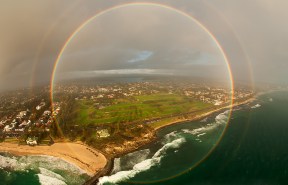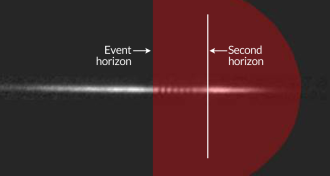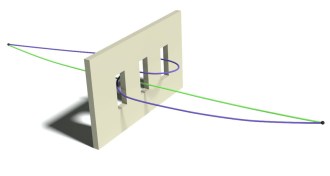Physics
Sign up for our newsletter
We summarize the week's scientific breakthroughs every Thursday.
-
 Physics
PhysicsLaser tractor beam tugs on beads
A new experiment is the first to construct a tractor beam that can pull objects over long distances with light.
By Andrew Grant -
 Physics
PhysicsPerfect fluid of electrons may flow inside superconductor
Understanding superconductors’ viscosity could help inspire scientists to find ways to improve the electric power grid.
By Andrew Grant -
 Physics
PhysicsComplete double rainbow encircles Australian town
A photographer in a helicopter captured a double circular rainbow while flying around a storm near Perth, Australia.
-
 Particle Physics
Particle PhysicsNew particle could help physicists understand subatomic glue
A newfound particle will allow scientists to probe the universe’s strongest force.
By Andrew Grant -
 Physics
PhysicsFalling raindrops break terminal velocity
Unknown mechanism causes tiny raindrops to fall faster than terminal velocity.
-
 Quantum Physics
Quantum PhysicsHawking radiation spotted within sonic black hole
Lab-created sonic black hole emits energy as famed physicist Stephen Hawking predicted, though the experiment may not be definitive.
By Andrew Grant -
 Materials Science
Materials ScienceBlue LEDs win Nobel Prize in physics
Light-emitting diodes have led to more energy-efficient bulbs that are elbowing out incandescents.
By Andrew Grant -
 Chemistry
ChemistryLasers wrest oxygen from carbon dioxide
By zapping oxygen molecules off carbon dioxide, an experiment hints that Earth may have had breathable air long before the dawn of plants.
By Beth Mole -
 Physics
PhysicsBlue light-emitting diode earns three researchers Nobel Prize in physics
The invention of blue light-emitting diodes has been awarded the 2014 Nobel Prize in physics.
-
 Quantum Physics
Quantum PhysicsPhotons on roundabout route could get caught in action
Proposed twist on classic double-slit experiment could identify light that weaves in and out.
By Andrew Grant -
 Health & Medicine
Health & MedicineZero calories and other awe-inspiring science tales
In this issue, reporters look at artificial sweeteners, resurrecting a West Coast plant, quasiparticles and the future of our magazine and its parent non-profit, SSP.
By Eva Emerson -
 Quantum Physics
Quantum PhysicsQuasiparticles help physicists make sense of the world
To improve semiconductors, superconductors and other materials, physicists view a particle and its surroundings as one entity.
By Andrew Grant